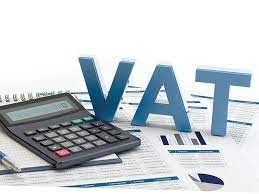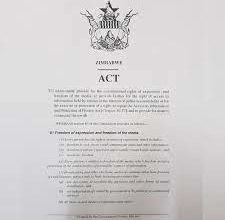UZA opposes lowered VAT threshold, warns of negative impact on SMEs

The United Zimbabwe Alliance (UZA) party has joined the chorus of voices protesting the recent decrease in the Value Added Tax (VAT) threshold by the Ministry of Finance, Economic Development and Investment Promotion.
This initiative, aimed at boosting tax revenue from the informal sector and small businesses, has raised concerns about its potential downsides.
Finance Minister Professor Mthuli Ncube reduced the VAT threshold from US$40,000 to US$25,000 effective January 1, 2024.
This change requires businesses exceeding the limit to register and pay VAT or face penalties. Additionally, new measures mandate retailers to buy goods exclusively from wholesalers and prohibit unregistered informal traders from purchasing merchandise exceeding US$1,000 from manufacturers and wholesalers.
UZA President Elizabeth Valerio criticised the new national budget, stating that it demonstrates a disconnect from the current economic realities faced by Zimbabweans.
“In an attempt to boost tax revenue through consumption taxes, the Minister opted to lower the VAT registration thresholds. However, it is crucial to consider the potential consequences, particularly for Small to Medium Enterprises (SMEs), as they are the main targets,” Valerio elaborated.
UZA warned against the negative impact on service-oriented businesses due to the lowered threshold.
“This would impose an unfair burden on these entities, hindering their ability to manage VAT compliance. Lowering the threshold risks hindering the growth of small startups by subjecting them to VAT obligations, especially given their unique circumstances where purchased goods and services for taxable supplies are typically minimal,” she explained.
Valerio suggested a nuanced approach, advocating for a lower threshold for businesses outside the service sector, while upholding a higher threshold for service-oriented ones. This, she said, would provide greater flexibility and cater to the specific needs of different business types.
Meanwhile, in Bulawayo, SMEs and informal traders have made two specific requests from the government: a six-month grace period to familiarise themselves with the new legislation and a temporary exemption from paying VAT during that time.
Businesses have also expressed concerns about the potential harm the measures could inflict on their operations, which often rely heavily on sales to the informal market. The Confederation of Zimbabwe Industries (CZI) warned that the new trading measures could lead to a flood of foreign goods displacing local products, as informal traders might resort to smuggling goods if barred from purchasing from wholesalers.
Instead, CZI proposed a 3% presumptive VAT on all goods sold to unregistered traders, with the collected funds remitted to the Zimbabwe Revenue Authority (ZIMRA).






